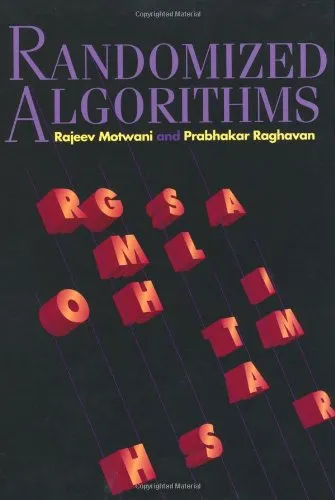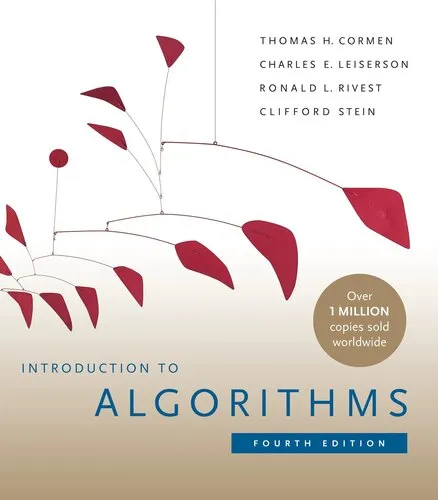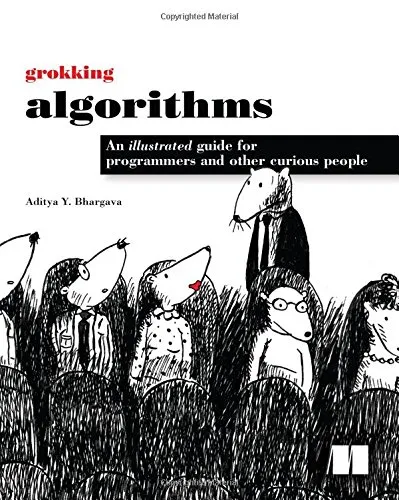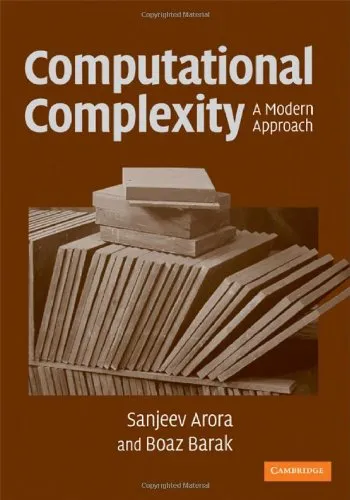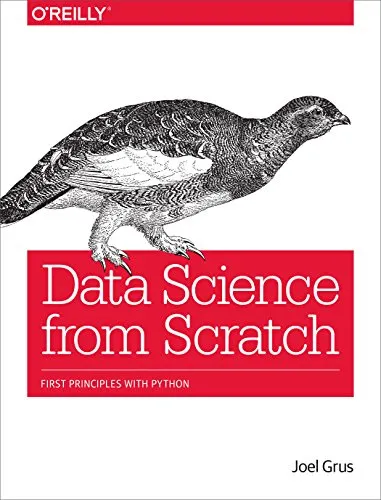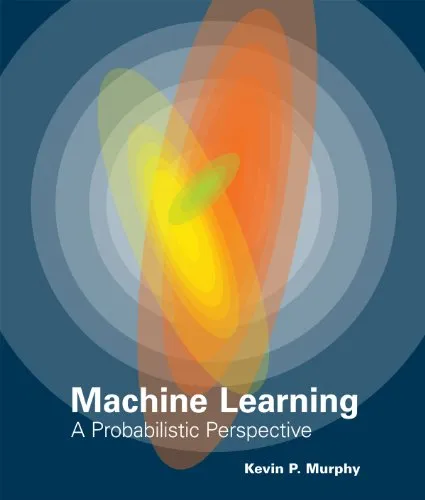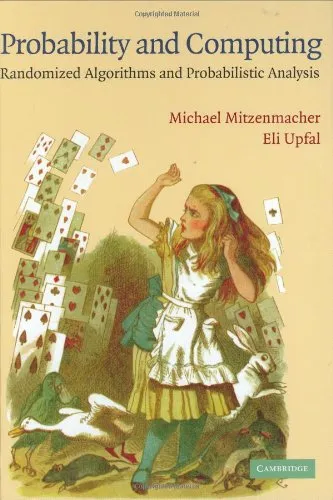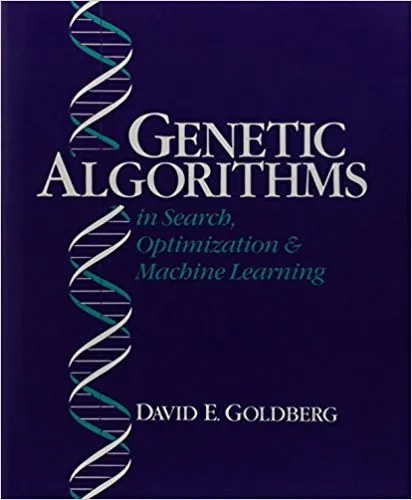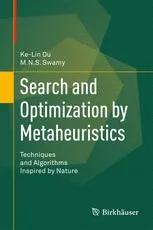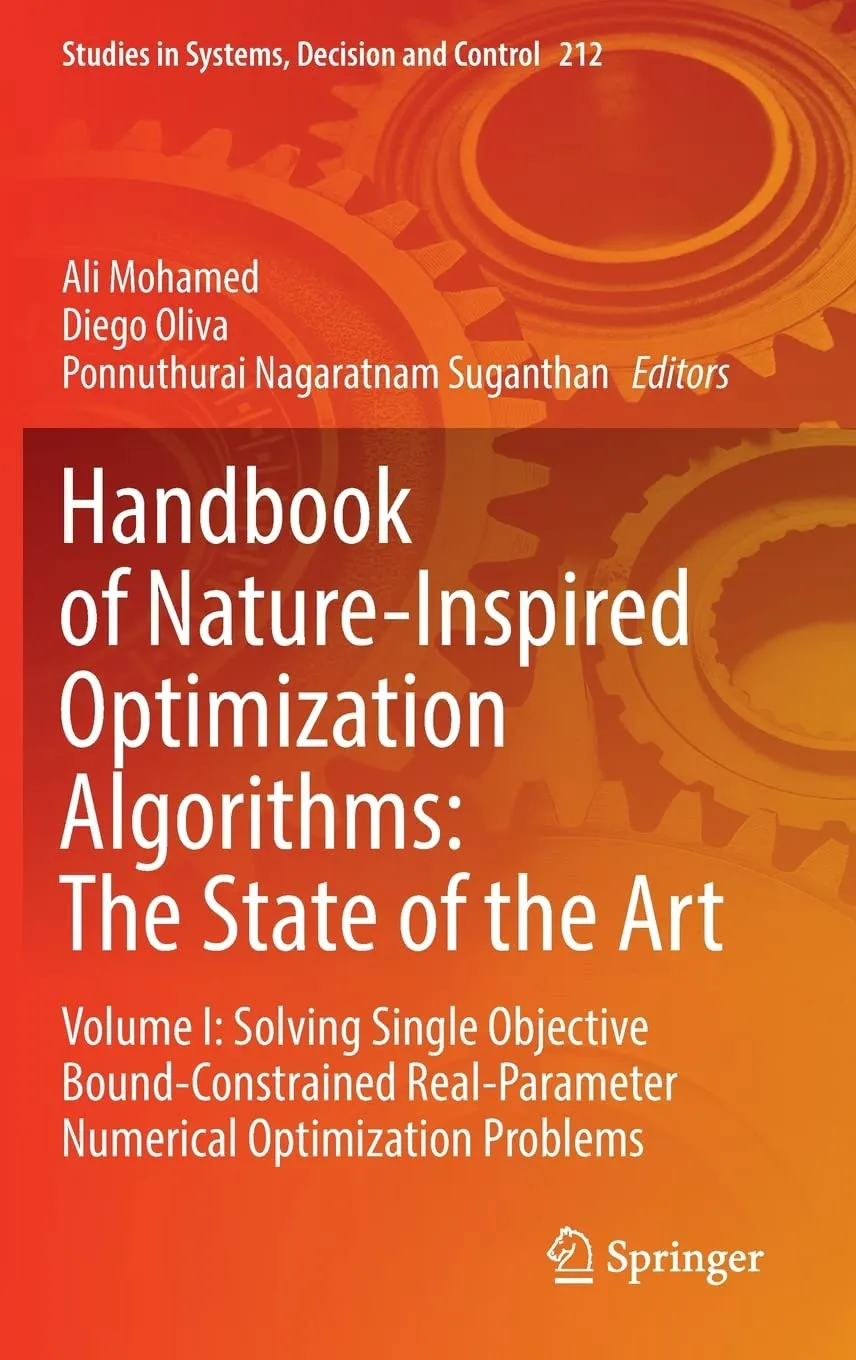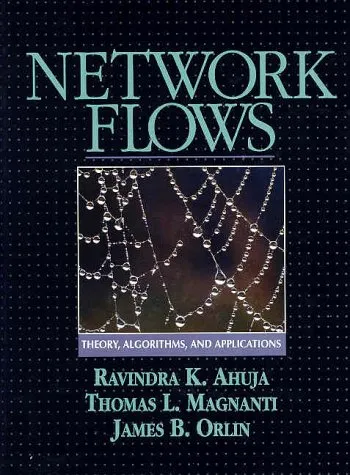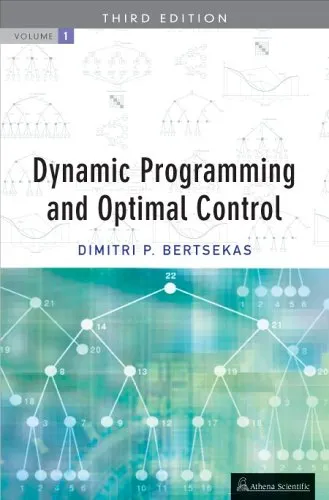Randomized Algorithms
4.2
بر اساس نظر کاربران

شما میتونید سوالاتتون در باره کتاب رو از هوش مصنوعیش بعد از ورود بپرسید
هر دانلود یا پرسش از هوش مصنوعی 2 امتیاز لازم دارد، برای بدست آوردن امتیاز رایگان، به صفحه ی راهنمای امتیازات سر بزنید و یک سری کار ارزشمند انجام بدینکتاب های مرتبط:
معرفی کتاب "Randomized Algorithms"
کتاب "Randomized Algorithms" نوشته راجیف موتوانی و پراپاکار راقاوان، اثری کلاسیک و ارزشمند در حوزه محاسبات تصادفی و طراحی الگوریتمهای پیشرفته است. این کتاب برای دانشجویان، پژوهشگران و مهندسانی که علاقهمند به یادگیری الگوریتمهای تصادفی و کاربردهای گسترده آنها در علوم کامپیوتر هستند، منبعی بیبدیل به شمار میرود. این کتاب با یک روش منسجم و آموزشی، مفاهیم پیچیده را به گونهای توضیح میدهد که برای خوانندگان در سطوح مختلف تحصیل، قابلفهم باشد.
خلاصهای جامع از کتاب
کتاب "Randomized Algorithms" از سه بخش اصلی تشکیل شده است. در بخش اول، نویسندگان مفاهیم اساسی مانند Probability Theory و تکنیکهای تحلیل الگوریتمها را مرور کردهاند. سپس در بخش دوم، طراحی الگوریتمهای تصادفی معرفی میشود که شامل تکنیکهای کلیدی مانند Random Sampling، Markov Chains و روشهای Monte Carlo است.
در بخش پایانی، نویسندگان به کاربردهای گسترده الگوریتمهای تصادفی پرداخته و کاربردهای عملی مانند پردازش دادههای بزرگ، تئوری گراف و مسائل احتمالی در شبکههای کامپیوتری را توضیح دادهاند. هر فصل با تمرینهای چالشبرانگیز و مثالهای کاربردی ختم میشود که خواننده را به گسترش دانش و یادگیری عمیقتر تشویق میکند.
نکات کلیدی از کتاب
- آشنایی با انواع تکنیکهای طراحی الگوریتمهای تصادفی
- درک نقش Randomness در سادهسازی مسائل پیچیده در علوم کامپیوتر
- مروری جامع بر تحلیل عملکرد الگوریتمهای Monte Carlo و Las Vegas
- فهم مفاهیم پیچیدهای نظیر Chernoff Bounds و Applicationهای آن
- مطالعه کاربردهای عملی الگوریتمهای تصادفی در نظریه گراف، یادگیری ماشین و سیستمهای توزیعشده
جملات معروف از کتاب
"Randomness does not just simplify algorithms; it can also lead to solutions where none existed in its absence."
"The power of randomization lies not only in speed but in its elegance and adaptability."
چرا این کتاب اهمیت دارد؟
کتاب "Randomized Algorithms" به دلیل انسجام علمی و رویکرد منحصربهفرد در پردازش اطلاعات، یکی از تأثیرگذارترین آثار در حوزه علوم کامپیوتر محسوب میشود. نویسندگان با ارائه روشهای گوناگون و بیان شیوای مفاهیم، پلی میان تئوری و عمل ایجاد کردهاند.
الگوریتمهای تصادفی به طور گسترده در زمینههایی مانند Big Data، هوش مصنوعی، یادگیری ماشین و تحلیل سیستمها استفاده میشوند. این کتاب به شما این امکان را میدهد که درک بهتری از تواناییهای الگوریتمی و راهحلهای بهینه داشته باشید و آنها را در مسائل واقعی به کار بگیرید.
سخن پایانی
کتاب "Randomized Algorithms" نه تنها یک منبع آموزشی عالی بلکه یک منبع الهام برای محققان و علاقهمندان به علوم محاسباتی است. اگر به دنبال درک عمیق از مفاهیم Randomness و الگوریتمهای تصادفی هستید، این کتاب بهترین انتخاب برای شما خواهد بود.
Introduction to Randomized Algorithms
The book Randomized Algorithms by Rajeev Motwani and Prabhakar Raghavan is a comprehensive and elegant exploration of the role of randomness in the design and analysis of algorithms. It offers rigorous yet intuitive frameworks to understand how randomization enhances algorithmic efficiency across various applications, from data structures and graph algorithms to cryptography and parallel processing. As randomness increasingly defines computational paradigms, this book remains a cornerstone in understanding these principles, making it a must-have for computer scientists, students, and professionals alike.
Detailed Summary of the Book
The book is divided into well-structured chapters, each focusing on different aspects and applications of randomized algorithms. It begins with an introduction to basic probability theory and foundational concepts in algorithm design. This sets the stage for exploring randomized algorithms in comparison to deterministic ones. Through numerous well-chosen examples, the text demonstrates how randomization often simplifies algorithmic design and leads to solutions that are computationally efficient while being conceptually elegant.
The authors delve deeply into the analysis of randomized techniques such as Monte Carlo and Las Vegas algorithms, explaining their distinct properties and applications. The text also explores a variety of domains where randomized algorithms have robust applications: sorting and searching, approximate computation, combinatorial optimization, graph algorithms (such as minimum cuts and network flows), and distributed systems.
Recognizing the challenges with probabilistic analysis, the authors present practical methods for estimating probabilities and bounding errors using Markov’s inequality, Chebyshev’s inequality, and Chernoff bounds. These bounding techniques serve as essential tools for analyzing randomized algorithms with mathematical rigor, ensuring accurate error estimates and performance guarantees.
Often praised for its breadth and depth, the book also delves into complex topics like randomized rounding for approximation algorithms, random walks, and derandomization techniques, equipping readers with a complete toolkit for both theoretical and practical applications. It brings together detailed proofs, illustrative exercises, and insightful examples, combining theoretical foundations with a focus on implementation challenges.
Key Takeaways
- Randomization is a powerful tool that simplifies algorithm design and improves efficiency in many cases.
- Understanding probability and bounding techniques is essential for analyzing randomized algorithms rigorously.
- Randomized algorithms are not limited to theoretical constructs but have real-world relevance in areas like cryptography, parallel computing, and network optimization.
- Both Monte Carlo (where results are approximate but fast) and Las Vegas (where results are exact with variable completion time) algorithms illustrate unique strengths and tradeoffs of randomized approaches.
- The book bridges theoretical underpinnings with practical usage, making it accessible for academics and industry professionals alike.
Famous Quotes from the Book
"Randomness is not merely a substitute for ingenious deterministic designs — it provides an entirely new perspective, where uncertainty is an asset rather than a liability."
"A randomized algorithm transcends simple calculations, achieving elegance by introducing probability as a driving force for efficiency and innovation."
Why This Book Matters
As computer science evolves, the role of randomness in computational processes becomes increasingly significant. Randomized Algorithms is a seminal contribution that serves as a bridge between theory and practice, introducing readers to the exciting and growing field of probabilistic analysis in algorithm design.
The authors masterfully distill complex concepts into a format that is accessible to a wide audience, whether you're a student dipping your toes into the subject or a researcher searching for advanced techniques. By emphasizing both intuition and rigor, the book equips its readers with the tools necessary to tackle real-world problems using randomness as a core element of their solutions.
The methodologies and principles derived from this book are not confined to academic explorations but find applications in domains such as artificial intelligence, machine learning, financial modeling, and secure communication systems. This relevance ensures its continued importance in both educational institutions and professional fields.
In an era where computational resources are precious and efficiency is paramount, the ability to design and understand randomized algorithms is more crucial than ever. This book, thus, stands as a timeless resource, preparing current and future generations of computer scientists to embrace the power of randomness in their work.
دانلود رایگان مستقیم
شما میتونید سوالاتتون در باره کتاب رو از هوش مصنوعیش بعد از ورود بپرسید
دسترسی به کتابها از طریق پلتفرمهای قانونی و کتابخانههای عمومی نه تنها از حقوق نویسندگان و ناشران حمایت میکند، بلکه به پایداری فرهنگ کتابخوانی نیز کمک میرساند. پیش از دانلود، لحظهای به بررسی این گزینهها فکر کنید.
این کتاب رو در پلتفرم های دیگه ببینید
WorldCat به شما کمک میکنه تا کتاب ها رو در کتابخانه های سراسر دنیا پیدا کنید
امتیازها، نظرات تخصصی و صحبت ها درباره کتاب را در Goodreads ببینید
کتابهای کمیاب یا دست دوم را در AbeBooks پیدا کنید و بخرید
1223
بازدید4.2
امتیاز0
نظر98%
رضایتنظرات:
4.2
بر اساس 0 نظر کاربران
Questions & Answers
Ask questions about this book or help others by answering
No questions yet. Be the first to ask!
